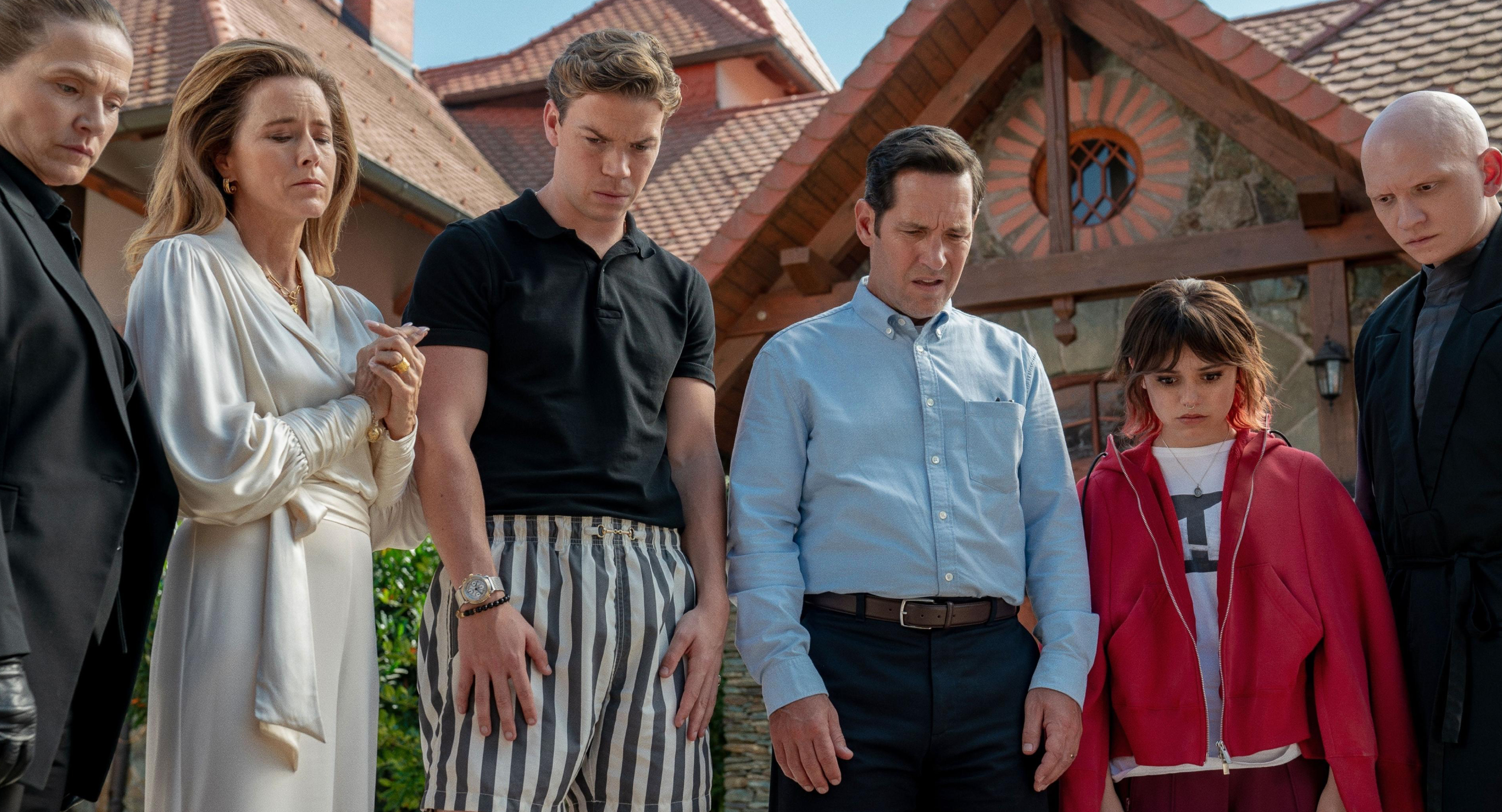Death of a Unicorn – Film Review
Published March 29, 2025

It’s a sad day when I go to my local movie theatre and watch a brand new film starring one of my all-time favorite actresses – Jenna Ortega – and instead of having the time of my life, I slump in my seat in complete agony, dreading everything, and counting down the seconds until the movie is over.
Alex Scharfman‘s Death of a Unicorn seemed like the type of movie that would be right up my alley. Crazy premise? Check. Excellent actors that I love? Check. It’s produced by Ari Aster? Also check. Sadly though, this was probably my most painful moviegoing experience of the year so far.
Jenna Ortega continues to cement her status as a modern scream queen, effortlessly carrying much of the film’s emotional and comedic weight. As Ridley Kintner, she injects a sense of sincerity and bewilderment into the film’s escalating madness. Her interactions with Paul Rudd’s Elliot Kintner feel natural, and their father-daughter dynamic is one of the few bright spots in the film. Rudd, ever the reliable straight man, delivers a performance that leans more into the comedic elements rather than the horror. Unfortunately, his role is somewhat underwritten, leaving him reacting to the absurdity rather than truly driving the story forward.
The supporting cast, however, is where the film begins to unravel. The Leopold family—Odell (Richard E. Grant), Belinda (Téa Leoni), and Shepard (Will Poulter)—are an insufferable bunch, written to be as grating and unlikable as possible. While this was intentional, their exaggerated performances and dialogue make it difficult to invest in any of their fates. Grant’s portrayal of the ailing patriarch should have been a highlight, but his cartoonish villainy quickly becomes tiresome. Poulter’s Shepard is especially irritating, an over-the-top antagonist whose motivations and behavior veer into caricature territory. Rather than presenting a compelling set of secondary characters, the Leopolds merely add to the film’s plodding runtime.
Clocking in at nearly two hours, Death of a Unicorn overstays its welcome. The film takes an inordinate amount of time setting up its premise, and while the inciting incident is compelling, what follows is a drawn-out, meandering narrative. The second act, in particular, drags as characters engage in repetitive conversations about the unicorn’s magical properties and potential financial exploitation. Scenes that should build tension or enhance the horror are instead bogged down by unnecessary exposition.
By the time the action ramps up, the viewer is more exhausted than excited. The film’s climax, which should be a chaotic and thrilling payoff, is marred by inconsistent pacing and bizarre tonal shifts. Just when the unicorn revenge plot should reach a fever pitch, the narrative grinds to a halt with unnecessary diversions. This lack of momentum prevents Death of a Unicorn from ever feeling like a true horror-comedy rollercoaster.
For a film marketed as a horror-comedy, Death of a Unicorn feels strikingly light on horror. While it certainly delivers some moments of gruesome violence, the tension is nonexistent. The film’s best kills—such as the unicorns’ rampage through the estate—are well executed and provide brief flashes of excitement. However, these moments are too few and far between, and the film rarely capitalizes on the inherent terror of being hunted by mystical, vengeance-driven creatures.
Moreover, the unicorns themselves, while visually striking, never quite feel as menacing as they should. The decision to portray them as both majestic and brutal is interesting, but the execution lacks impact. Their attacks are sporadic and lack the buildup needed to make them truly terrifying. In a film that should have leaned into its horror roots, the absence of genuine suspense is a major letdown.
Despite its flaws, Death of a Unicorn does have moments where its dark humor shines. The satirical jabs at corporate greed, scientific ethics, and the exploitation of natural wonders provide some amusing commentary. The idea that unicorn blood could be a miracle cure is an inherently fun concept, and the way characters react to its potential is occasionally entertaining. Unfortunately, these moments are buried under an uneven script and an overreliance on characters who are more irritating than amusing.
Death of a Unicorn had the potential to be a sharp, darkly comedic horror film with a unique premise. Instead, it squanders its strengths with an exhausting runtime, frustrating supporting characters, and a shocking lack of effective horror elements. Jenna Ortega gives it her all, and some of the kills are memorably brutal, but these highlights aren’t enough to save the film from its own shortcomings.
